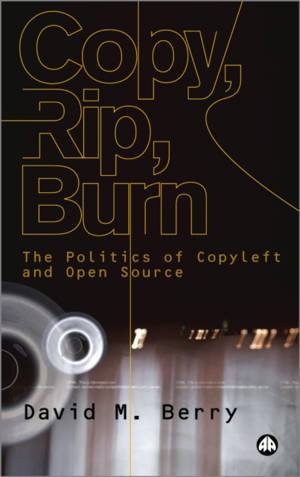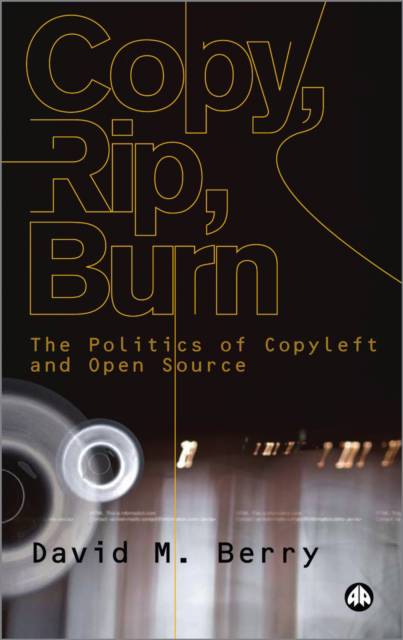
- Afhalen na 1 uur in een winkel met voorraad
- Gratis thuislevering in België vanaf € 30
- Ruim aanbod met 7 miljoen producten
- Afhalen na 1 uur in een winkel met voorraad
- Gratis thuislevering in België vanaf € 30
- Ruim aanbod met 7 miljoen producten
Zoeken
Copy, Rip, Burn
The Politics of Copyleft and Open Source: The Politics of Copyleft and Open Source
David M Berry
Paperback | Engels
€ 59,95
+ 119 punten
Omschrijving
From downloading music and movies to accessing free software, digital media is forcing us to rethink the very idea of intellectual property. While big companies complain about lost profits, the individual has never enjoyed such freedom and autonomy. Berry explores this debate in a concise way, offering an ideal introduction for anyone not versed in the legalistic terminology that - up until now - has dominated coverage of this issue. Looking at the historical development of the free software and the open source movement he examines its growth, politics and potential impact, showing how the ideas that inspired the movement have now begun to influence the wider cultural landscape. He explores whether free software offers us the potential to re-think our relationship with technology in the information society. This book will appeal to students of media and journalism, and anyone interested in new opportunities for creating a truly independent and democratic media.
Specificaties
Betrokkenen
- Auteur(s):
- Uitgeverij:
Inhoud
- Aantal bladzijden:
- 280
- Taal:
- Engels
Eigenschappen
- Productcode (EAN):
- 9780745324142
- Verschijningsdatum:
- 1/09/2008
- Uitvoering:
- Paperback
- Formaat:
- Trade paperback (VS)
- Afmetingen:
- 135 mm x 211 mm
- Gewicht:
- 340 g

Alleen bij Standaard Boekhandel
+ 119 punten op je klantenkaart van Standaard Boekhandel
Beoordelingen
We publiceren alleen reviews die voldoen aan de voorwaarden voor reviews. Bekijk onze voorwaarden voor reviews.








